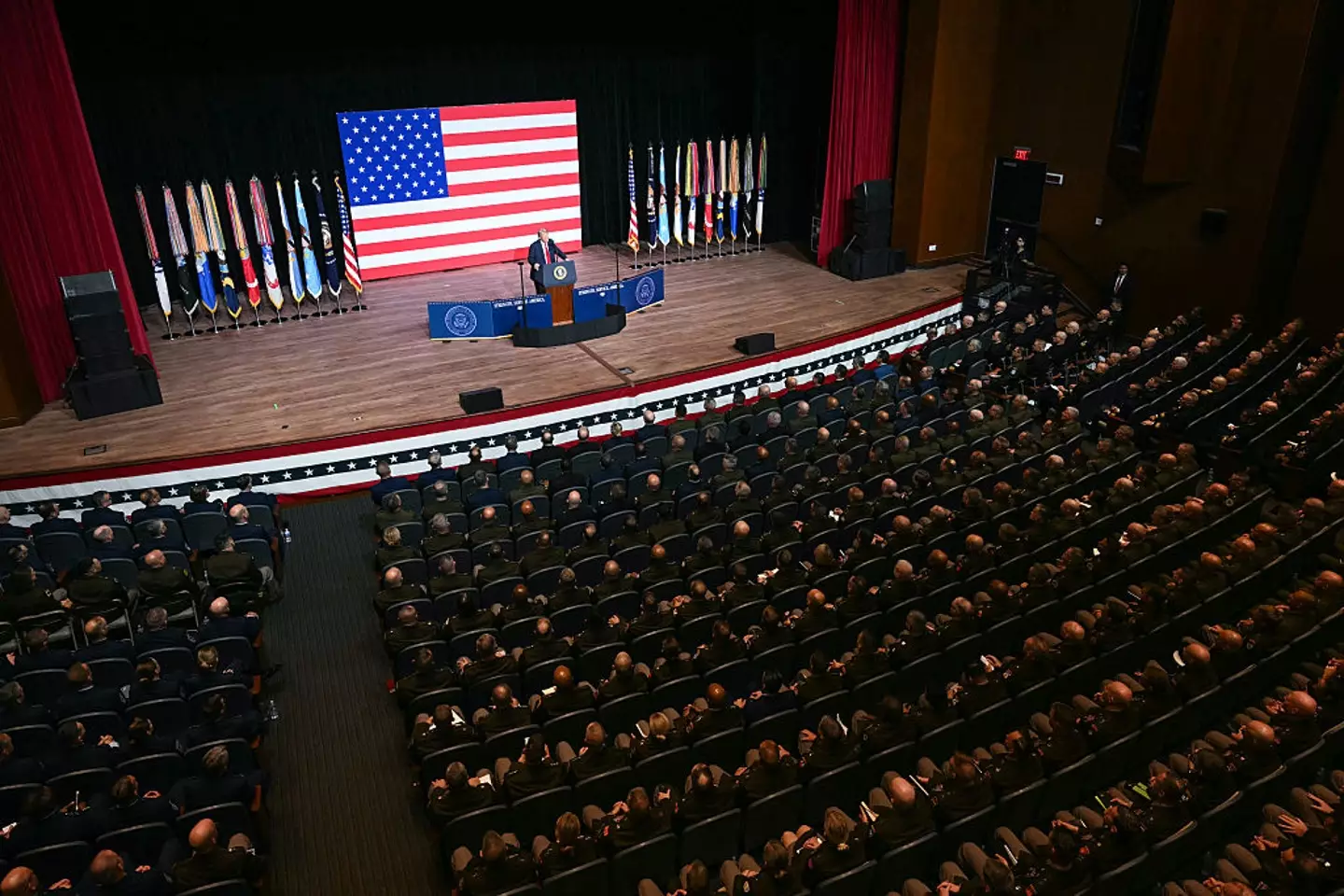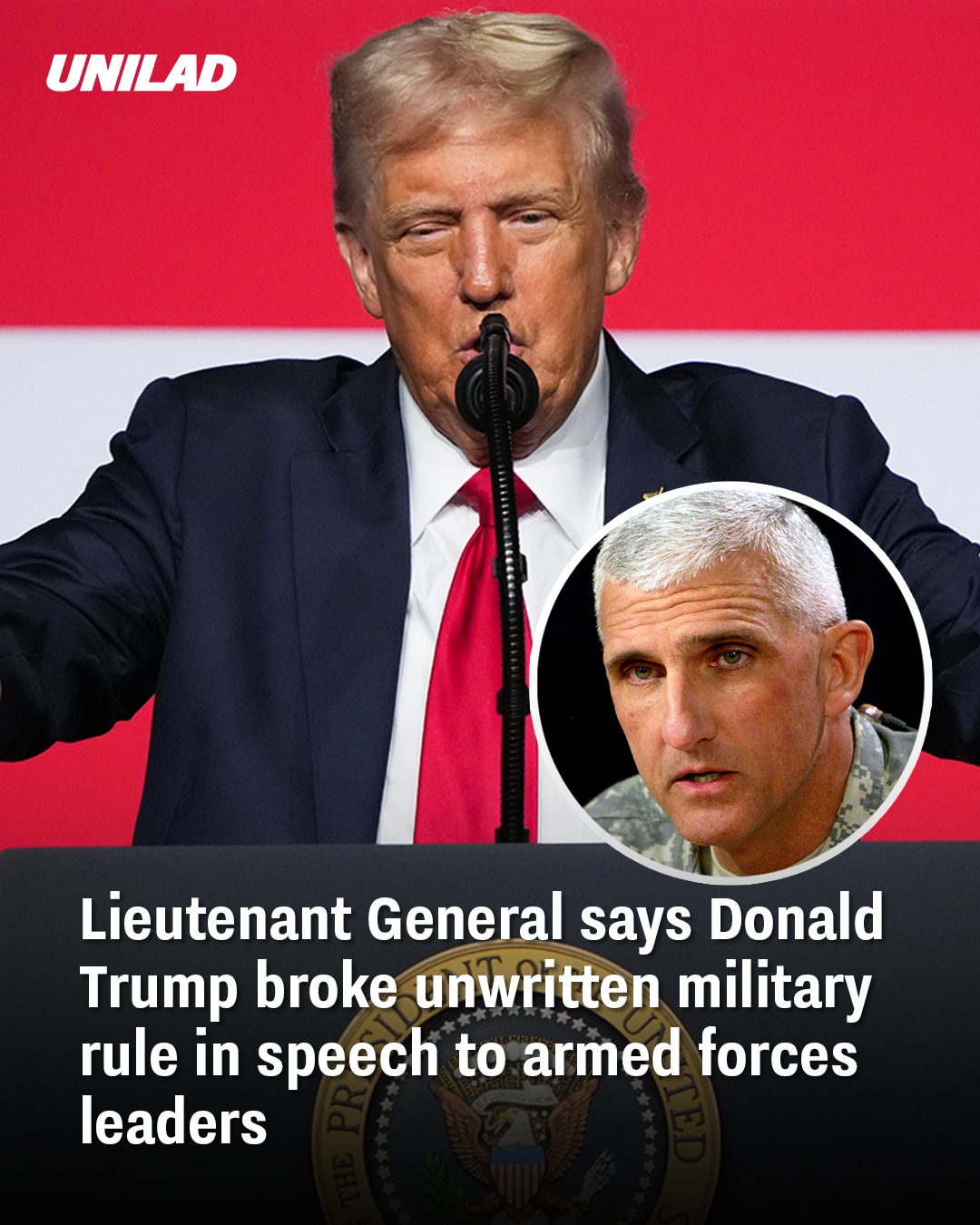Donald Trump’s recent speech at Marine Corps Base Quantico has drawn sharp criticism from retired military officials, with some accusing him of breaking a core unwritten rule of military leadership.
A Controversial Address
Speaking to military leaders, Trump praised the National Guard’s efforts in tackling issues like crime, homelessness, and immigration. But his tone and choice of words quickly sparked backlash.
He suggested the United States was engaged in a war “from within” and boasted that the nation is “25 years ahead” of Russia and China in nuclear submarine technology. At one point, he even joked about “two N words” that cannot be said — clarifying that one was “nuclear.”
The audience of officers responded with silence so noticeable that Trump himself commented:
“I’ve never walked into a room so silent before.”
Breaking an Unwritten Rule
Retired Lieutenant General Mark Hertling criticized Trump and Secretary of War Pete Hegseth for violating an important but unspoken military principle:
“You praise in public and you discipline in private.”
Instead, Hertling argued, Trump and Hegseth used the stage — and national cameras — to issue what felt like a public scolding of the armed forces.

Trump appeared to ‘scold’ the military in his speech (JIM WATSON/AFP via Getty Images)
“Hitler-esque” Rhetoric
Retired Major General William Enyart went even further, describing Trump’s use of the phrase “enemy from within” as:
“Hitler-esque. That is right out of Nazi Germany. That is not constitutional speech.”
The comments, he said, risk sowing distrust between the military and the American people.
Hegseth’s “Anti-Woke” Rant
Adding to the controversy, Hegseth launched into an attack on what he described as “woke” practices within the military, calling for an end to:
-
Diversity, equity and inclusion (DEI) programs
-
Gender identity recognition
-
Environmental initiatives
-
What he called “identity months” and “dudes in dresses”
He emphasized stricter physical standards, even stating:
“If that means no women qualify for some combat jobs, so be it.”
The remarks reportedly left many officers “embarrassed” and uncertain, according to Hertling, who suggested some may now question whether to follow orders they view as discriminatory or illegal.
Fallout
For many veterans, the speech crossed a line by blending political rhetoric with military command. Hertling warned:
“I guarantee you that the people in that audience will not execute illegal orders.”
The incident has ignited renewed debate about civilian leadership, military professionalism, and the role of political agendas within the armed forces.


